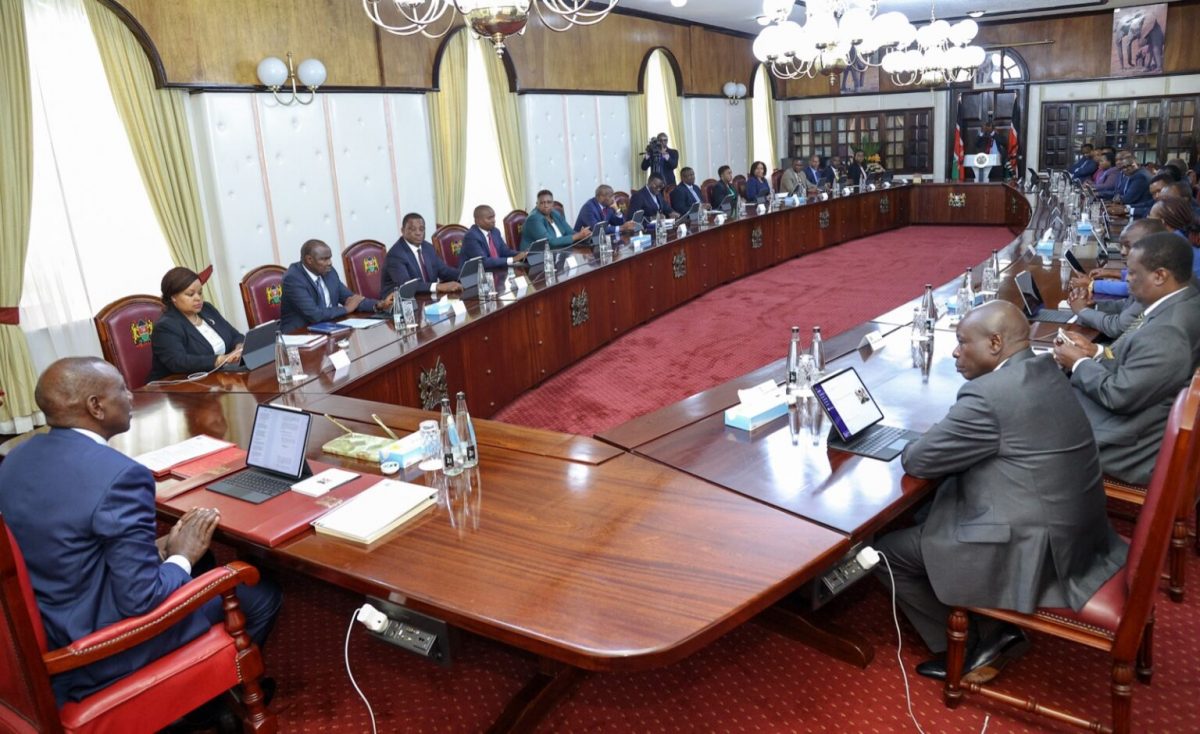Cabinet steps up war on money laundering

The government has taken a significant step towards combating money laundering and enhancing the country’s financial integrity. This follows the approval by the cabinet of the Anti-Money Laundering and Combating of Terrorism Financing Laws (Amendment) Bill 2023 and sanctioning its transmittal to Parliament for passage.
In a statement, State House Spokesperson Hussein Mohamed said the amendment will boost the government’s efforts to combat money laundering and enhance Kenya’s financial integrity.
“The Bill proposes legal and policy reforms to address technical compliance deficiencies identified in Kenya’s second Anti-Money Laundering and Counter-Terrorism Financing Mutual Evaluation Report by the Eastern and Southern Africa Anti-Money Laundering Group,” he added.
The proposed amendment seeks to review all existing laws related to anti-money laundering, and anti-terrorism financing to ensure efficient detection and prevention of money laundering activities in Kenya. It includes supervising and enforcing terrorism financing, reporting suspicious transactions, transparency of beneficial ownership, and combating terrorism financing.
According to the Bill, financial institutions and designated non-financial businesses will be required to conduct thorough verification of their customers.
The Bill also seeks to enhance customer due diligence, strengthen reporting obligations, expand scope and coverage as well as increasing penalties and deterrents. These measures will help prevent the risk of anonymous transactions and ensure transparency in financial dealings.
“As a progressive member of the Community of Nations, Kenya acknowledges that money laundering poses a significant risk to the integrity of the financial system and the country’s overall security,” the statement noted. It said the proposed law also addresses risks associated with funding of weapons of mass destruction as well as new threats in the digital and crypto-currency spaces.
Additionally, the modifications would make it more important for regulated companies to swiftly report transactions and activities that are suspicious to the Financial Reporting Centre (FRC).
The FRC will analyse the reports and share intelligence with the appropriate law enforcement agencies, who will launch investigations and take the necessary legal action against those who engage in money laundering.
In the new Bill, money laundering offences will include a wider range of activities like proceeds of domestic and international criminal activities and terrorism financing.
The development comes at a time when MPs have complained against banking sector regulations that required people withdrawing over Sh1 million to disclose the source of the funds. The rules put in place by former Central Bank Governor Patrick Njoroge have elicited strong reactions due to disclosure rules and limits placed on withdrawals by banks.
Kenya’s location at the horn of Africa and as a transit hub of the Eastern Africa region makes it a major potential conduit for dealings in illicit trade. The country’s proximity to Somalia, an Al Shabaab hideout also makes it a key hub for terror related activities.







